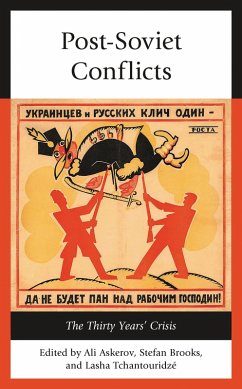In the 30 years since the emergence of the post-Soviet conflicts things have both changed and remained the same - continuities and changes in post-Soviet conflicts are the primary themes of this volume - it addresses all major wars, civil wars, and rebellions in the former Soviet Union. The volume focuses on factors that have contributed or may contribute to the resolution of the post-Soviet conflicts, most of which have represented rather long and damaging crises. In all conflict cases Moscow has been guided by Russian state interests - some have been instigated or fueled, others driven to a frozen state, and still a couple of others have been constructively resolved due to Moscow's intervention. Russia has used a long-term strategy for the resolution of those conflicts that have taken place on its soil, but in regards to the conflicts in other post-Soviet states, there is no long-term solution in sight. As such, the conflicts in Ukraine, Georgia, Moldova, and Nagorniy Karabakh, remain unresolved involving not only the named states, but Russia as well. They may represent localized national or regional crisis impacting only the states involved, but for the Russian Federation they epitomize one huge post-Soviet crisis with no obvious end.
Bitte wählen Sie Ihr Anliegen aus.
Rechnungen
Retourenschein anfordern
Bestellstatus
Storno

